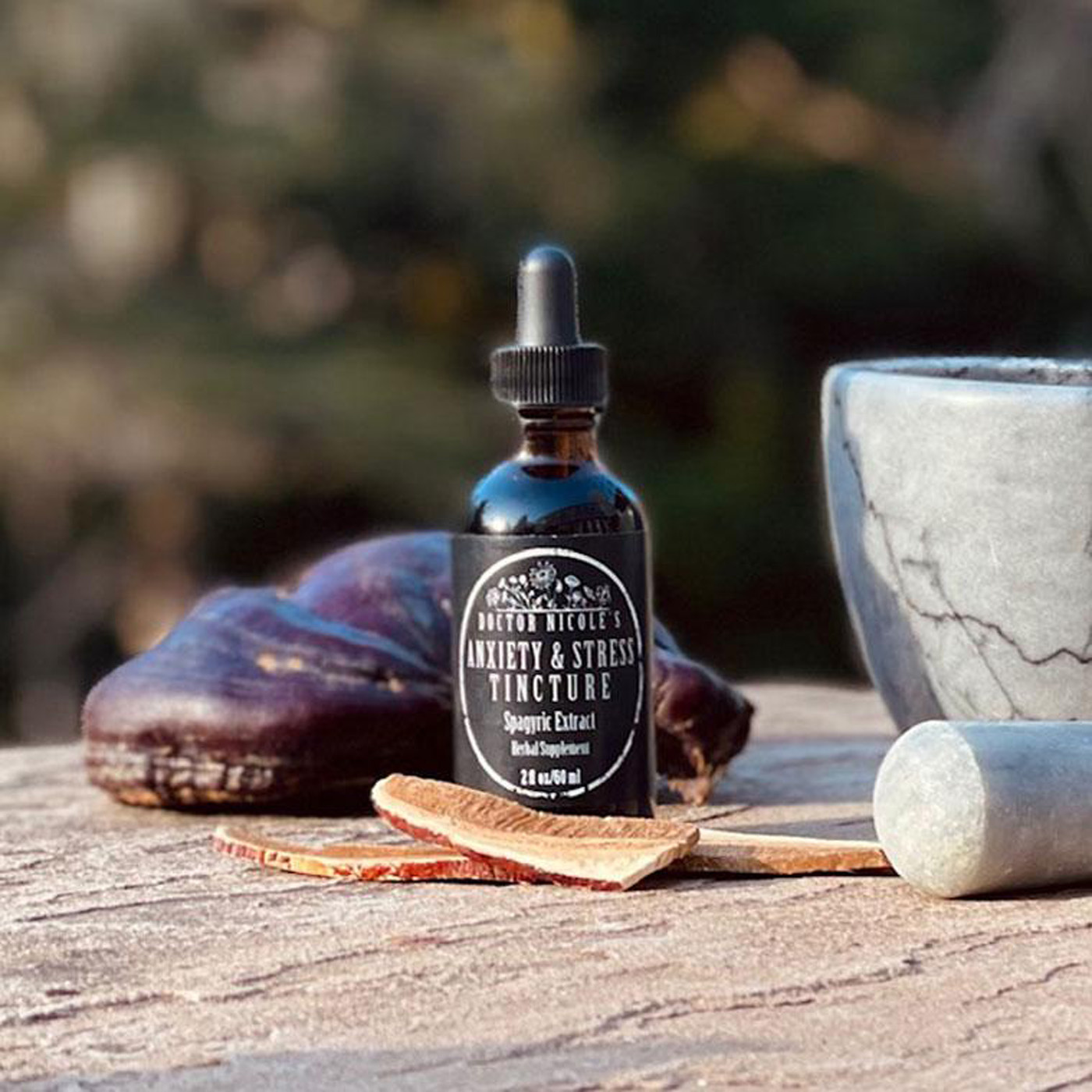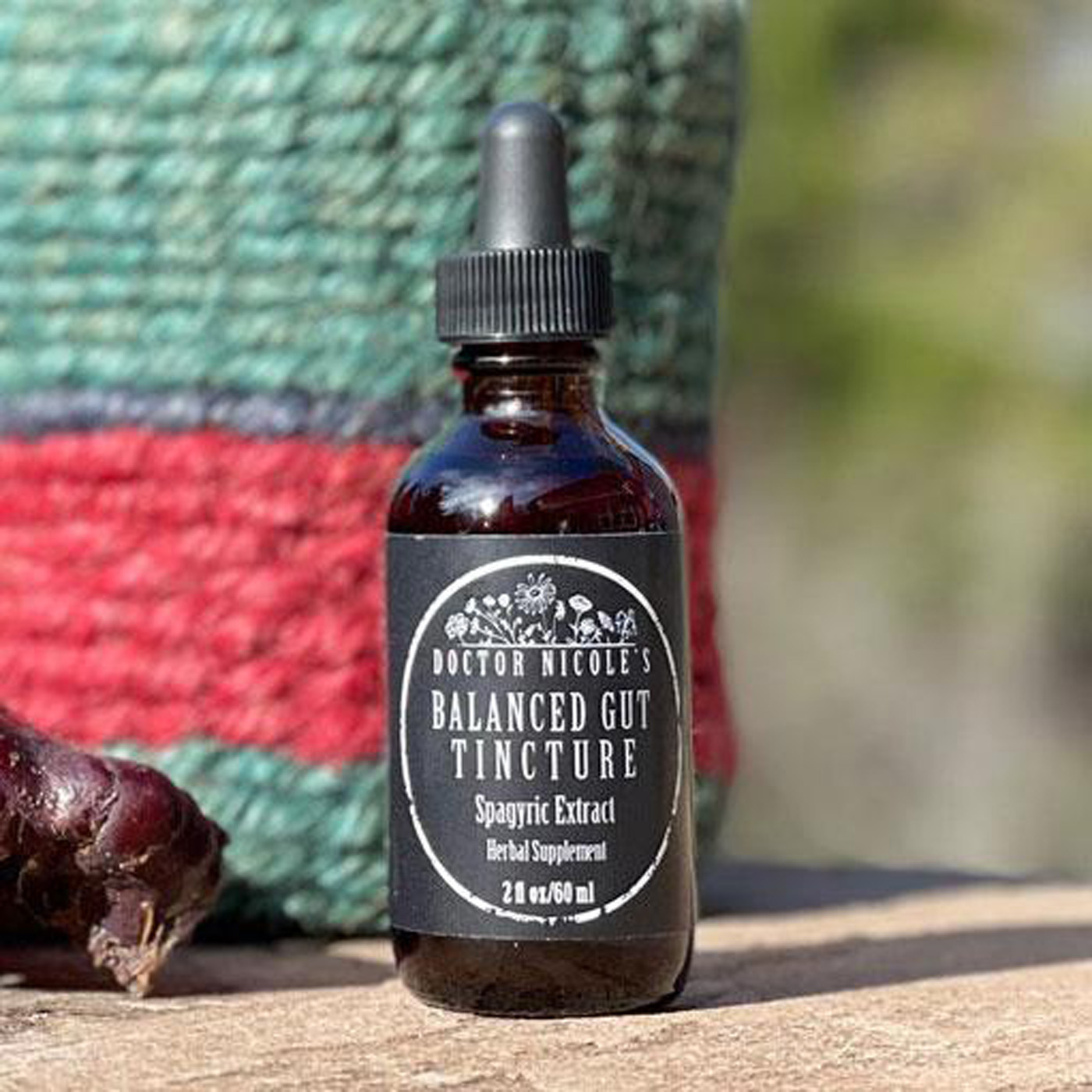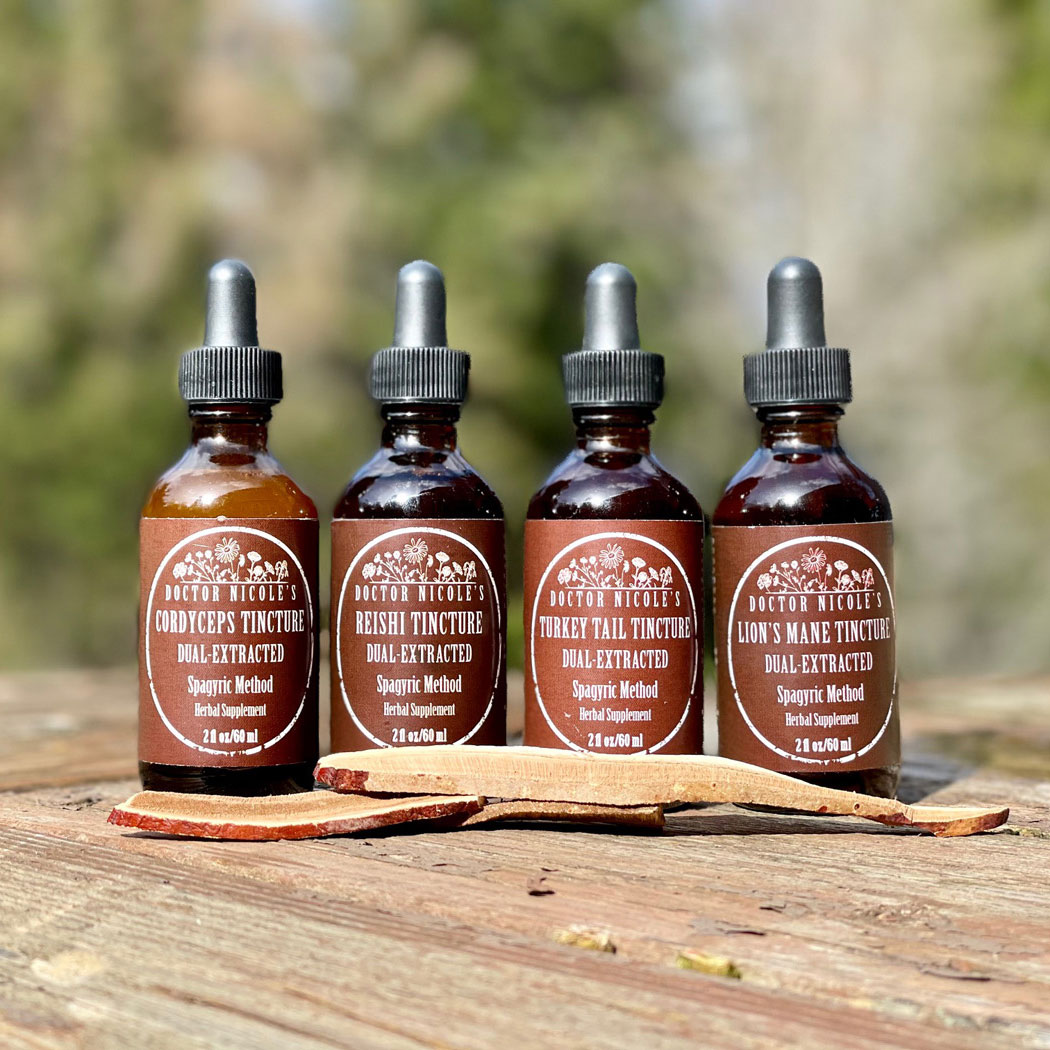A Journey of Healing
Not only is a multiple sclerosis or another autoimmunity diagnosis difficult to navigate emotionally, but the disease itself can cause numerous cognitive issues — including depression, anxiety, brain fog, and more. I know for myself that I experienced acute overwhelm when I learned I had MS and wasn’t sure how to handle the diagnosis nor the implications of a serious disease. It is easy to sink into despair, despondency, and anger. For many, the diagnosis triggers grief. It certainly did for me. But over the years I have found that my journey has also been one of hope and gratefulness, along with deep healing. Today I would like to share with you how I not only navigate MS emotionally and physically, but thrive in spite of it.
My Diagnosis
Back in 2000 when I was 30, I received a multiple sclerosis diagnosis. An MRI confirmed lesions on my brain from the disease — bright white spots on the film. Because I am a researcher by nature, I dove into stacks of books on MS to learn more. The implications were overwhelming, but I followed my doctor’s advice and began treatment with a range of drugs to address muscle spasms, drugs to combat fatigue, drugs to counteract the side effects of the previous drugs. And I continued to spiral down into increasing sickness.
Throughout this period, I kept telling myself, I’m sick, I’m sick, I’m sick and sank into depression and hopelessness. By the time 2002 rolled around, I left the work I loved, on good days used a cane during the day and often a wheelchair at night, and was usually so fatigued I was often bed bound. My concentration and memory were shot, brain fog my constant companion. It was difficult to face that the person I once was — vibrant, healthy, active — was gone at just thirty two years old.
The turning point came when I woke up one morning and realized I wanted more out of life, to have another child, to get healthy again, to truly thrive not just survive. It was time to make a change, so I took charge of my physical and mental health. You can read about the full protocol I developed to manage my MS in this post.

How MS Influences Cognitive Function
Time and again, researchers have established that multiple sclerosis has a significant impact on cognitive and mental health. It is directly tied to depression, anxiety, and poor cognitive performance, particularly during MS flares.1,2 Multiple sclerosis is known to impact memory, complex attention, speed of information processing, planning and prioritizing, visual perceptual abilities; and word finding.3 This is why it is important to address any cognitive and mental health concerns you may have to improve quality of life and overall happiness. Below details my own journey with this and how I ultimately overcame these challenges.
The Mind-Body Connection
One aspect I discovered is that addressing the physical impacts of MS is crucial for regaining emotional and cognitive wellbeing. How so? Because MS is directly tied to inflammation, which in turn significantly influences our level of brain fog, anxiety, depression, and feelings of overwhelm.
“For persons with relapsing-remitting MS, early in the disease, depression appears to be linked to inflammatory processes. Later, in the secondary-progressive phase, unhelpful thoughts, such as feelings of guilt, worthlessness or hopelessness are more frequent. So the depression in this case is thought to be more reactive — linked to frustrations with lifestyle changes or loss of function,” explains rehabilitation neuropsychologist Meghan L. Beier, Ph.D.4
You can also experience what is called the pseudobulbar affect, which is when there is a disconnect between what you are feeling and how you express emotions. You may start crying suddenly, even though you don’t feel sad or upset. Or uncontrollable laughter may arise for no reason. This is due to a breakdown of communication between the front and the back of the brain caused by MS lesions. It can also be triggered by atrophy of the brain in the later stages of the disease or steroid use.
These lesions are created when the immune system attacks the protective coating of the nerves (myelin sheath) in your central nervous system (CNS), which is made up of your brain, spinal cord, and optic nerve. Depending where the lesions form, it can cause mood swings and emotional instability, along with the physical symptoms of tremors, and balance and walking issues.
This is why it is crucial to minimize inflammation and slow the damage to the myelin sheath, while also promoting new brain cell growth. I have found medicinal mushrooms to be key to this end. Here are the four dual-extracted, spagyric mushroom tinctures I use every day:

Cordyceps Mushroom
- Improves memory, learning, and reduces oxidative damage to cells.5,6
- Combats fatigue
- Fights chronic inflammation
- Neuroprotective
- Antimicrobial
- Antiviral — Cordycepin from C. militaris is thought to inhibit viral entry and viral replication into the host body’s cells.
- Boosts athletic performance
- Improves brain function
- A study published in Phytotherapy Research found that cordyceps improves brain function in animal models.5
Lion’s Mane Mushroom
- Anti-inflammatory
- Boosts cognitive function
- Lessens insomnia, anxiety, and depression
- Improves energy by improving blood oxygen levels, reducing muscle fatigue, and lowering lactic acid accumulation.
- Shown to help reduce symptoms of Alzheimer’s, Dementia, and Parkinson’s.8,9,10
- Helps to repair damaged nerve cells in the spinal cord and brain by encouraging Nerve Growth Factor (NGF).
- Studies have shown that lion’s mane has a unique ability to stimulate the growth of brain cells.7
- Helpful for autoimmune conditions like Crohn’s disease and multiple sclerosis.
Reishi Mushroom
- Fosters quality sleep, alleviates adrenal fatigue, and encourages healthy immune function.
- Strengthens the body against the negative effects of stress, including: hormonal imbalances, high cortisol, fatigue, brain fog, and low energy.
- Relieves autoimmune diseases and leaky gut through anti-inflammatory action and immune system modulation.
- High in beneficial beta glucans, glycoproteins, and triterpenes to support gut and metabolic health.
Turkey Tail Mushroom
- Helps with leaky gut and candida overgrowth
- Reduces the symptoms of chronic fatigue syndrome
- Calms internal and external inflammation
- Fights bacterial and viral infections, including: HIV, herpes, shingles, HPV, colds, and influenza.
- A known immune modulator, turkey tail is an effective medicinal herb for autoimmune conditions.
Each is found in our convenient Mushroom FOURtress Bundle in the apothecary. Additionally, I use our Balanced Gut Blend everyday as leaky gut is directly tied to the development and worsening of multiple sclerosis.11 For myself, these extracts have been an integral aspect of my healing, so much so that my MS has not progressed in over a decade!

Lifestyle Support
One pivotal aspect of my healing has to do with my thoughts associated with MS and how I approach life each day. As noted above, it took a radical shift of perspective to begin the journey of healing — one that I maintain to this day. Namely, that we are not powerless and can take control of our own health. A major component of this involves living in a state of gratitude. Even with my most challenging days, I could always find something to be thankful for. I believe this is paramount to maintaining health. Try keeping a daily gratitude journal for a month or two and experience the transformational power for yourself!
I also practice stress-relieving methods such as yoga, meditation, and deep breathing exercises. Laughter is another stress-busting activity that I enjoy often. As we know, chronic stress damages not only our physical health, but also our happiness, contentment, and joy. During periods of intense stress, my Anxiety & Stress tincture offers an extra layer of support. It helps the body to adapt to stress in a healthy way, calms the nervous system, and relieves anxiety, depression, and stress-related insomnia. It also improves cognitive function and lowers inflammation for optimal brain health.
Lastly, attending to any grief you may be feeling is important. As I wrote in Grief and the Nature of Loss: How to Find Comfort, Hope, and Healing:
“Taking care of ourselves when we are experiencing grief is a crucial aspect of healing the pain. Attending to our physical health by eating well, getting enough quality sleep, drinking plenty of water, and spending time in nature are key. … During seasons of grief, it is important to know that you are not alone. While our culture tends to glorify rugged individualism, we are actually strongest when we are connected with one another. An empathetic friend, relative, counselor, or support group where you can speak honestly about your experience is a vital aspect of healing.”
Closing Thoughts
Receiving a MS diagnosis can be emotionally overwhelming, especially in the early days. But take heart. Many live vibrantly healthy lives with multiple sclerosis — and you can too! For myself, this is closely tied to gratitude and reducing stress; taking active steps to address any emotional, mental, or physical challenges with lifestyle habits and herbal medicine; and working through difficult seasons by transforming grief into strength, resiliency, connection, and hope.
It is my sincerest wish that these suggestions will help to bring you healing and comfort as you navigate your own journey. All my best to you!
Nicole Apelian
Nicole’s Apothecary Products in this Post
References
- José Sá M. (2008). Psychological aspects of multiple sclerosis. Clinical neurology and neurosurgery, 110(9), 868–877. https://doi.org/10.1016/j.clineuro.2007.10.001
- Kalb R. (2007). The emotional and psychological impact of multiple sclerosis relapses. Journal of the neurological sciences, 256 Suppl 1, S29–S33. https://doi.org/10.1016/j.jns.2007.01.061
- Psychosocial Aspects of MS, National Multiple Sclerosis Society. Retrieved on January 25, 2023 from https://www.nationalmssociety.org/Research/Research-We-Fund/Restoring-What-s-Been-Lost/Psychosocial-Aspects-of-MS
- Multiple Sclerosis and Mental Health: 3 Common Challenges, Meghan L. Beier, M.A., Ph.D. Johns Hopkins Medicine. Retrieved on January 23, 2023 from https://www.hopkinsmedicine.org/health/conditions-and-diseases/multiple-sclerosis-ms/multiple-sclerosis-and-mental-health-3-common-challenges
- Ji, D. B., Ye, J., Li, C. L., Wang, Y. H., Zhao, J., & Cai, S. Q. (2009). Antiaging effect of Cordyceps sinensis extract. Phytotherapy research : PTR, 23(1), 116–122. https://doi.org/10.1002/ptr.2576
- Li, X. T., Li, H. C., Li, C. B., Dou, D. Q., & Gao, M. B. (2010). Protective effects on mitochondria and anti-aging activity of polysaccharides from cultivated fruiting bodies of Cordyceps militaris. The American journal of Chinese medicine, 38(6), 1093–1106. https://doi.org/10.1142/S0192415X10008494
- Lai, P. L., Naidu, M., Sabaratnam, V., Wong, K. H., David, R. P., Kuppusamy, U. R., Abdullah, N., & Malek, S. N. (2013). Neurotrophic properties of the Lion’s mane medicinal mushroom, Hericium erinaceus (Higher Basidiomycetes) from Malaysia. International journal of medicinal mushrooms, 15(6), 539–554. https://doi.org/10.1615/intjmedmushr.v15.i6.30
- Mori, K., Obara, Y., Moriya, T., Inatomi, S., & Nakahata, N. (2011). Effects of Hericium erinaceus on amyloid β(25-35) peptide-induced learning and memory deficits in mice. Biomedical research (Tokyo, Japan), 32(1), 67–72. https://doi.org/10.2220/biomedres.32.67
- Tsai-Teng, T., Chin-Chu, C., Li-Ya, L., Wan-Ping, C., Chung-Kuang, L., Chien-Chang, S., Chi-Ying, H. F., Chien-Chih, C., & Shiao, Y. J. (2016). Erinacine A-enriched Hericium erinaceus mycelium ameliorates Alzheimer’s disease-related pathologies in APPswe/PS1dE9 transgenic mice. Journal of biomedical science, 23(1), 49. https://doi.org/10.1186/s12929-016-0266-z
- Zhang, J., An, S., Hu, W., Teng, M., Wang, X., Qu, Y., Liu, Y., Yuan, Y., & Wang, D. (2016). The Neuroprotective Properties of Hericium erinaceus in Glutamate-Damaged Differentiated PC12 Cells and an Alzheimer’s Disease Mouse Model. International journal of molecular sciences, 17(11), 1810. https://doi.org/10.3390/ijms17111810
- Parodi, B., & Kerlero de Rosbo, N. (2021). The Gut-Brain Axis in Multiple Sclerosis. Is Its Dysfunction a Pathological Trigger or a Consequence of the Disease?. Frontiers in immunology, 12, 718220. https://doi.org/10.3389/fimmu.2021.718220







